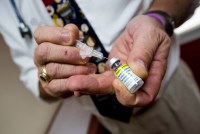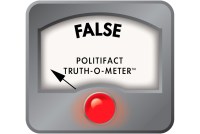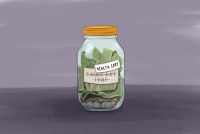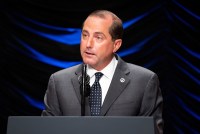Latest KFF Health News Stories
Price Of Snakebite Drug Is Sky High, But New Competitor Unlikely To Lower Costs
The drug CroFab, which has been on the market since 2000, now faces competition from a drug called Anavip. But both are expensive.
Federal Experts’ Advice On HPV Vaccine Could Leave Adults Confused
A federal advisory panel says people between ages 27 and 45 may benefit from the vaccine to fight the human papillomavirus. But some public health advocates worry that the advice doesn’t provide doctors and patients clear guidance about who in this large age group are good candidates for the vaccine.
Obesity Plagues Hispanics And Blacks In Colorado, Nation’s ‘Healthiest’ State
Obesity prevention does not get much attention in Colorado, often billed as the healthiest state. Yet more than 1 in 4 black or Hispanic residents are obese, as state and federal public health spending fuels other needs.
The New West: Smoke In The Sky, A Purifier At Home
Amid forecasts for increasingly unhealthy air due to wildfire smoke, residents in Western states are snatching up home air purifiers. With good reason.
Doctors Argue Plans To Remedy Surprise Medical Bills Will ‘Shred’ The Safety Net
A case of questionable logic.
Watch: What Happened To That $500K Dialysis Bill
After journalists investigate, Fresenius, one of the largest dialysis providers in the U.S., has agreed to waive a half-million-dollar bill. Sovereign Valentine, from Plains, Mont., said it’s a “huge relief.”
Modern Wildfires Pose New Health Risks For Firefighters
Studies long have linked urban firefighters’ on-the-job exposure to toxins with an increased risk of cancer. More recently, as urban-style development reaches into once remote stretches of California’s mountains and forests, wildfire crews are exposed to fuels and carcinogens more typical of urban fires. We talk with Tony Stefani of the San Francisco Firefighters Cancer Prevention Foundation about the health risks that poses for firefighters.
Trump Wants To Take Guns Away From People In Crisis. Will That Work?
So-called red flag laws that let police take guns away from people with mental illness have support from both advocates and opponents of gun control. But it won’t alleviate gun violence.
Kathy Brandt, A Hospice Expert Who Invited The World Into Her Own Last Days With Cancer, Dies
Kathy Brandt and her wife, Kim Acquaviva, national experts in hospice and palliative care, shared intimate details of Brandt’s experience with terminal cancer before her death Sunday.
The Real-Life Conversion Of A Former Anti-Vaxxer
Kelley Watson Snyder, a mother who for years opposed mandatory childhood vaccinations and joined with like-minded parents who espoused similar views, today runs a pro-vaccination Facebook page. What changed?
Superstar Athletes Popularize Unproven Stem Cell Procedures
Treatments for baseball pitcher Max Scherzer and other pros may mislead fans about costly, controversial, unapproved stem cell shots.
Must-Reads Of The Week From Brianna Labuskes
Newsletter editor Brianna Labuskes wades through hundreds of health care policy stories each week, so you don’t have to.
If You Smoke Pot, Your Anesthesiologist Needs To Know
Colorado is on the front lines in dealing with how marijuana use affects surgery. Lessons learned on operating tables and in recovery rooms have prompted calls for more research on marijuana nationwide.
Infusion Treatments — Needed or Not — Can Deplete Patients’ Wallets
When it comes to physician-administered infusion drugs, doctors sometimes have a financial reason for their choice and patients often aren’t aware of cheaper options.
KHN’s ‘What The Health?’: Deciphering The Democrats’ Health Debate
Health care was a major topic at the Democratic presidential candidate debates in Detroit on Tuesday and Wednesday, but the focus on plan minutiae may have left viewers more confused than edified. Alice Ollstein of Politico, Kimberly Leonard of the Washington Examiner and Caitlin Owens of Axios join KHN’s Julie Rovner to discuss the points made by the candidates plus a series of Trump administration health initiatives on drug prices and hospital shopping.
California Bill Would Fight Deals That Delay Generic Drugs
As California Attorney General Xavier Becerra cracks down on pharmaceutical companies he said paid competitors to delay generic versions of their drugs, he’s also pushing for legislation that would give his department tools to catch more of them. It’s the first of its kind in the nation.
The Talk Seniors Need To Have With Doctors Before Surgery
Surgeons are rethinking the old notions of “informed consent.” With older patients especially, a push is on to talk candidly about what a surgery will do, its risks and how it will affect their quality of life.
Biden-Harris Debate Rematch Highlights Health Plan Differences
The Wednesday night event marked the second night in a row for Democratic presidential hopefuls to stake claims on how to fix the health care system.
Trump Administration ‘Open For Business’ On Drug Imports From Canada
HHS secretary announces a preliminary plan Wednesday to allow Americans to import certain lower-cost drugs from Canada. Manufacturers were quick to criticize the plan, saying it does not guarantee the safety of drugs coming into the country.
Trump Administration Moves To Make Health Care Costs More Transparent
The proposed rules would require hospitals to provide far more detail about the actual prices they charge insurers for patients’ care.


























